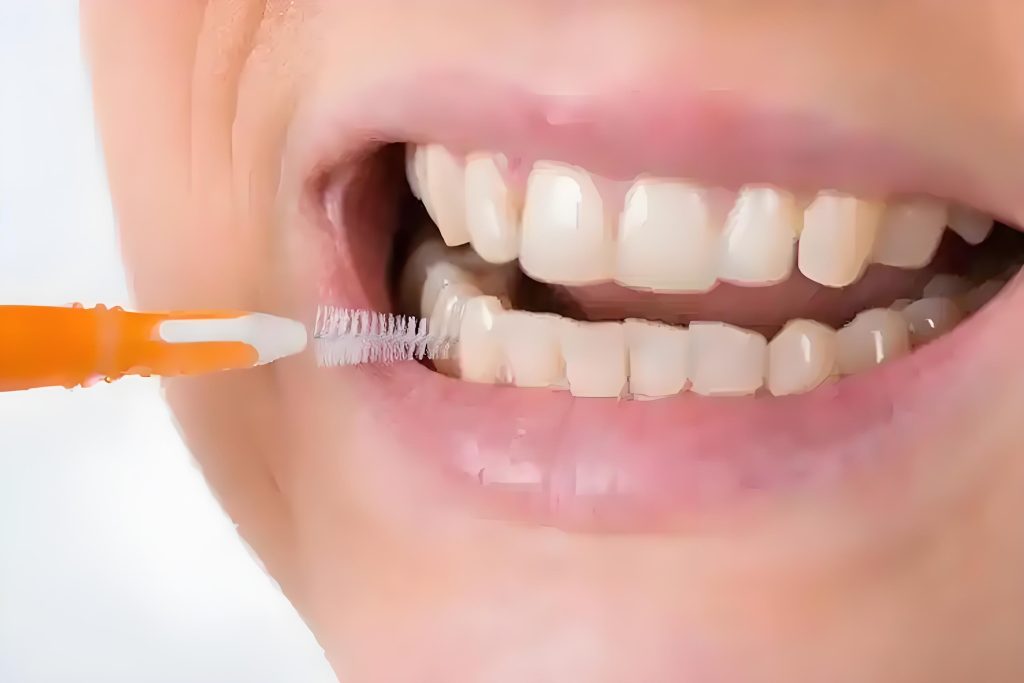As we age, maintaining good oral health becomes increasingly crucial yet often challenging. The elderly population faces unique oral health issues that can significantly impact their overall well-being. From dry mouth and gum disease to tooth decay and the natural loss of teeth, these changes require a thoughtful and considerate approach to oral hygiene. This article serves as a comprehensive guide, offering gentle yet effective strategies for ensuring optimal oral hygiene for elders, preserving their smiles and quality of life.

Understanding the Challenges
**1. Dry Mouth (Xerostomia):
As we grow older, our salivary glands may produce less saliva, leading to dry mouth. Saliva plays a vital role in cleaning the teeth and gums, neutralizing acids, and fighting bacteria. Dry mouth can increase the risk of cavities, gum disease, and oral infections.
**2. Gum Disease (Gingivitis and Periodontitis):
Elders are more prone to gum disease due to weakening immune systems, medications that reduce saliva flow, and poor oral hygiene habits. Gum disease not only affects oral health but can also contribute to systemic issues like heart disease and diabetes.
**3. Tooth Decay:
With age, tooth enamel can wear down, making teeth more susceptible to decay. Root caries, which occurs on the exposed roots of teeth due to gum recession, is a common problem among the elderly.
**4. Tooth Loss:
Natural tooth loss is a common part of aging. However, losing teeth can affect chewing ability, nutrition intake, and even facial structure.
**5. Medications and Health Conditions:
Many elderly individuals take multiple medications, some of which can cause side effects like dry mouth or decreased appetite, further complicating oral hygiene efforts.
Gentle Strategies for Effective Oral Hygiene
**1. Choosing the Right Tools:
- Soft-Bristled Toothbrushes: Soft-bristled toothbrushes are gentler on sensitive gums and worn enamel. Electric toothbrushes with soft heads can be particularly effective as they provide consistent and gentle cleaning.
- Interdental Cleaners: Flossing can be difficult for elders with arthritis or dexterity issues. Consider using interdental brushes, water flossers, or pre-threaded floss holders that make it easier to clean between teeth.
- Antimicrobial Toothpastes and Mouthwashes: Look for toothpastes formulated for sensitive teeth and gums. Antimicrobial mouthwashes can help reduce plaque and bacteria, especially for those with dry mouth.
**2. Adopting a Gentle Technique:
- Be Mindful of Pressure: Encourage elders to use a gentle, circular motion when brushing, avoiding excessive pressure that could harm gums.
- Brush at the Right Angle: Hold the toothbrush at a 45-degree angle to the gums to effectively clean both tooth surfaces and gum lines.
- Frequency and Duration: Aim for at least two minutes of brushing twice daily. Use a timer if necessary to ensure adequate cleaning time.
**3. Addressing Dry Mouth:
- Hydration: Encourage frequent sipping of water to keep the mouth moist. Avoid sugary drinks that can contribute to tooth decay.
- Sugar-Free Candies and Gums: These can stimulate saliva production. Look for options sweetened with xylitol, which has additional antimicrobial benefits.
- Oral Rinses: Prescription rinses or artificial saliva products can help alleviate dry mouth symptoms.
**4. Professional Dental Care:
- Regular Check-Ups: Regular dental visits are vital for early detection and treatment of oral health issues. Elders should visit the dentist at least twice a year or as recommended.
- Dental Cleanings: Professional cleanings can remove hardened plaque and tartar that are difficult to manage at home.
- Customized Treatments: Dentists can offer customized solutions such as fluoride treatments, sealants, or periodontal therapy tailored to an elder’s specific needs.
**5. Nutrition and Diet:
- Balanced Diet: A well-balanced diet rich in vitamins and minerals supports oral health. Ensure adequate intake of calcium and vitamin D for bone and tooth health.
- Avoid Sticky and Sugary Foods: Sticky foods and sugary snacks can adhere to teeth and increase the risk of cavities. Opt for nutritious snacks like fruits, vegetables, and dairy products.
- Soft and Easy-to-Chew Foods: As chewing ability may decline, choose foods that are easy to manage and digest without causing discomfort.
**6. Caregiver Involvement:
- Assistance with Routine: For elders with mobility or cognitive impairments, caregivers can play a pivotal role in ensuring oral hygiene routines are maintained.
- Education: Educate caregivers about proper oral hygiene techniques and products to use, ensuring consistency in care.
- Monitoring for Changes: Caregivers should regularly monitor for signs of oral health issues, such as redness, swelling, or persistent bad breath, and report any concerns to a healthcare provider.
Preserving the Joy of a Healthy Smile
Maintaining oral hygiene is not just about avoiding disease; it’s about preserving dignity, enhancing quality of life, and fostering a sense of well-being. By adopting these gentle yet effective strategies, we can empower elders to maintain healthy smiles, fostering a sense of independence and joy as they continue to navigate the beautiful journey of aging.
Remember, oral health is an integral part of overall health. Encouraging open communication between elders, caregivers, and healthcare professionals ensures that oral hygiene needs are met with compassion, understanding, and the highest standards of care.













































Discussion about this post